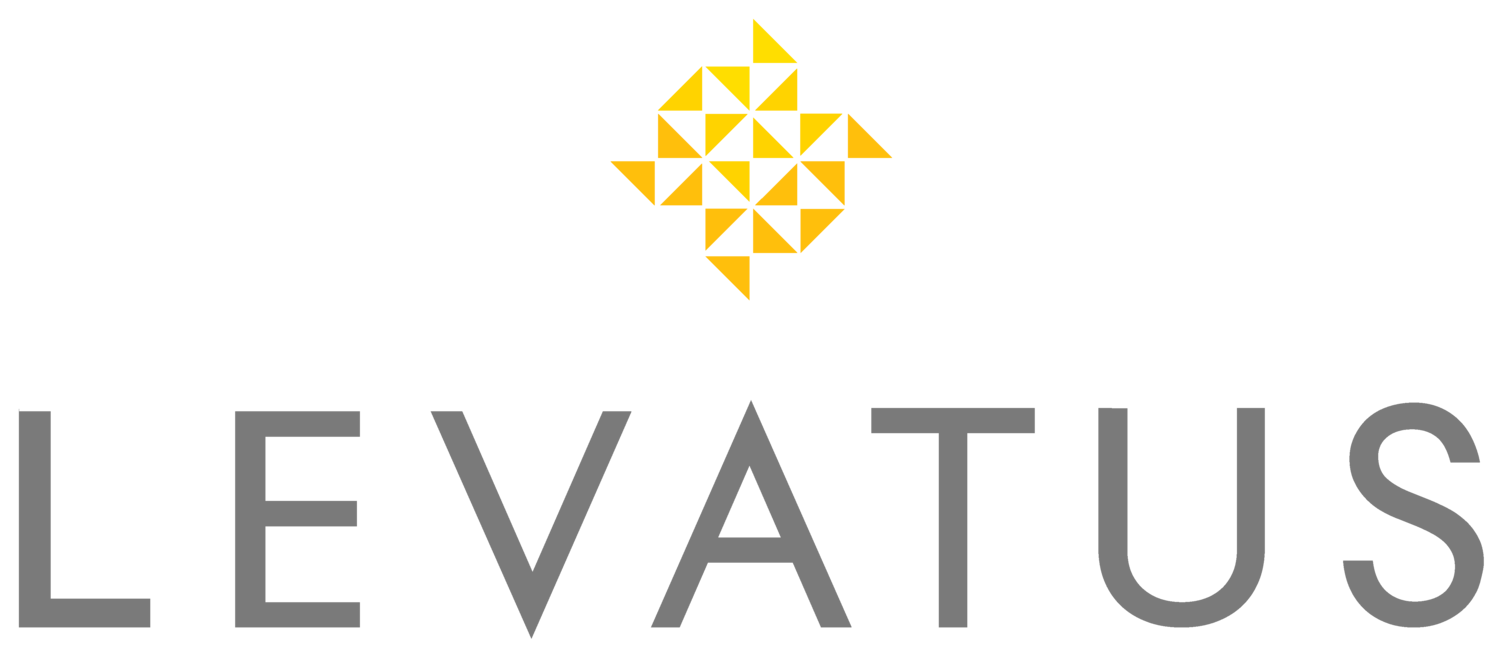LEVATUS Lifestyle | Fresh Look at your Fall Financial Checklist
TEN TIPS for a
Fruitful Fall from LEVATUS
Photo by Alex Geerts
Fall is here! It’s the time for apple cider donuts, pumpkin spice lattes, cozy socks and warm soups. Also, with more time being spent curled up by the fire indoors, it is a great time to get organized as we head into the end of the year. Below, find our LEVATUS Financial Checklist - 10 Tips for a Fruitful Fall:
Celebrate the value of the little things in life
Get your accounts ready for the holiday
Capitalize on 2020 RMD adjustment opportunity
Take advantage of free credit score reporting
Capture the positive energy of experiences
Maximize the power of open enrollment
Optimize your children’s summer jobs
Spice up your closet
Plan Annual Exclusion Gifts and Philanthropy
Take control of your tax bill
Photo by Isabella and Louisa Fischer
1. Celebrate the value of the little things in life
The little things in life have an outsized impact on our well-being. The first sweater days of the season, a pumpkin spice coffee with the steam breaking a chill in the air and apple picking a fun-filled family tradition, all mark the launch into fall. Activities like these may only be a small line item in the 'enjoying life' part of your budget but will provide many happy memories. The value of these ‘snap shots’ in your mind and the long-term value they bring can be outsized in relation to so many other things.
Photo by Sander Weeteling on Unsplash
2. Get your accounts ready for the holiday
The holidays can be a busy and cash flow intensive time of year so a fall review of your accounts and available cash to pay credit cards, make gifts and other annual expenses can be helpful. It is also a great time to review your budget. Enough of the year has gone by to determine a spending pattern, and there is still enough time left to make some adjustments. Some questions to ask yourself while reviewing your budget: are you on-pace to meet your savings goals, are there any areas that drastically differ than the target, and are there any cuts that need to be made?
Photo by Stil on Unsplash
3. Capitalize on 2020 RMD adjustment opportunity
The CARES Act enables any taxpayer with an RMD due in 2020 from a defined-contribution retirement plan, including a 401(k) or 403(b) plan, or an IRA, to skip those RMDs this year (RMD Relief). This includes anyone who turned age 70 1/2 in 2019 and would have had to take the first RMD by April 1, 2020. If you are currently taking an RMD but do not need to use the funds in the near future, you may want to consider stopping your RMD for the remainder of 2020.
Photo by Freestock on Unsplash
4. Take control, check your credit
In ordinary times you are entitled to a free credit report from each of the three credit reporting agencies: Equifax, Experian and TransUnion. However, due to COVID-19 and a flurry of credit related incidents you have access to one per week until April 2021 (Credit Report). Take control of your credit score before the holiday rush is upon us. Knowledge is power.
Photo by Chris Lawton on Unsplash
5. Capture the positive energy of experiences
Experiences can have a tremendously positive impact on our sense of well-being and so can the process of planning them. Map out trips for the coming year and check out flight prices. There are lots of deals and most airlines are offering free ticket changes: Many LEVATUS clients express a desire to travel in their Mission Statements. Being able to do what makes you happiest plus save a little at the same time it is certainly a win in our book!
Photo by Elizabeth Darling
6. Maximize the power of open enrollment
Many companies have open enrollment windows in the fall. Is yours one of them? Health care savings plans and cost-effective life insurance are just two of the treasures that often get lost in the holiday shuffle. Make time to review options on your own or with your advisor early in the fall, before holiday busyness takes over. Doing so with ample time before the deadline will make the process much less stressful (and make it less likely things get skipped) and give you a great feeling of control.
p.s. Do you have a flexible spending account at work? Health Care and Dependent Care Flexible spending accounts expire at the end of each calendar year. Take some time now to review the amount you have left plus your anticipated needs.
Photo by Brigitte Tohm Ko on Unsplash
7. Optimize your children’s summer jobs
Anyone with W2 earning, regardless of age, can contribute to a Roth IRA, which grows tax-free. Withdrawals are allowed after five years, penalty and tax-free, making a Roth IRA the account of choice for a teenager's summer earnings. It is a great way to get your kids starting to think about savings and investing early in their lives and careers. If your child has already spent their summer earnings on ice cream cones, parents can gift money up to the amount of the earnings in order to fund the account. Another idea is to do a match, if the child contributes $100 parents can match it.
Photo by Johnny Macri
8. Spice up your closet
Find something new for your fall closet and declutter the rest. Feeling good and looking good add to confidence, empowerment and energy, which is great for your career and your paycheck. Get ready for fall with a new outfit and organize your closet for the colder months ahead in the process. Getting organized is an added bonus that helps give you a better sense of control and peace of mind and helps reduce stress.
Photo by Gui Avelar
9. Plan Annual Exclusion Gifts and Philanthropy
Gifting, in the form of stock or other assets, is a tax efficient way to make charitable gifts and can also serve as a way to pass down money during your lifetime. The annual exclusion is the amount of money that one person may transfer to another as a gift within each calendar year without incurring a gift tax ($15,000 in 2020). Now is a good time to plan for pre – year end gifts to individuals and perhaps incorporate them into your holiday gift giving.
Photo by Priscilla du Preez
10. Take control of your tax bill
Almost everybody would rather use their money on something other than paying taxes. Given the potential for a changing tax backdrop in the United States after the elections, tax planning is particularly important (WSJ). For assets held in taxable accounts, today’s heightened volatility offers a unique chance to enhance after-tax returns by reviewing potential tax-loss harvesting opportunities within portfolios. After all, what you keep after taxes is the real bottom line.
Photo by Jon Tyson






















